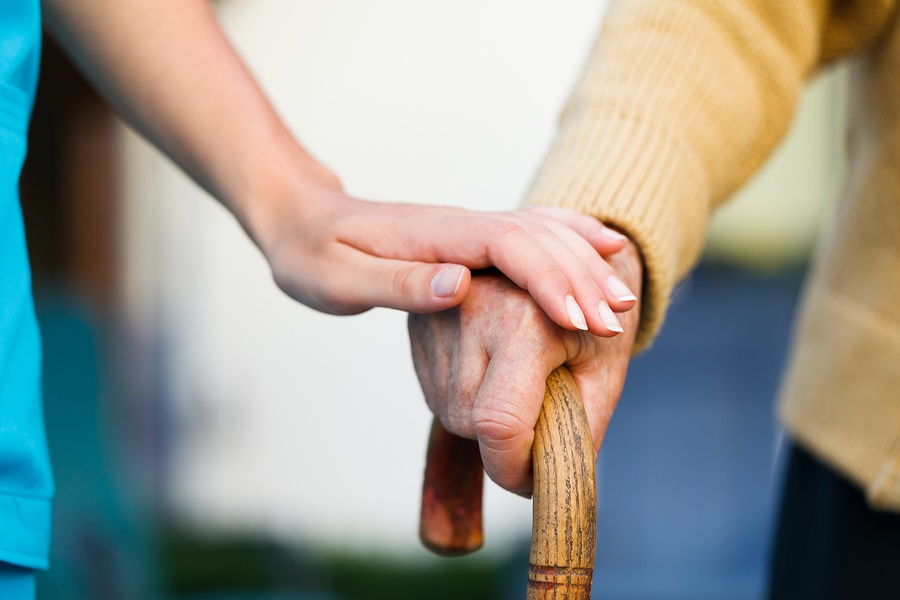
Falls put seniors at risk of serious injury including brain injury or broken bones. A broken hip from a fall is often what ends independent living for seniors. While seniors are at a higher risk of falling, there are ways to help reduce the risk of falling, and help them stay living in their own home longer.
Safety-Proof Your House
- Go room by room, looking for tripping hazards. (Ask a family member for help)
- Remove extra furniture, clutter, and electrical cords. Repair broken or loose boards.
- Remove throw rugs, or fasten them to the floor.
- Store items only in cabinets you can reach
- Remove raised doorway thresholds
- Install sturdy rails on stairs
Make Sure You Can See
- Get an annual eye exam.

- Always wear current prescription glasses.
- Use brighter light bulbs, & curtains that let the sunlight in.
- Use nightlights in the bedroom, bathroom, hallway.
- Turn on the lights if you get up in the night.
Good Foot Care & Proper Shoes
- Avoid walking in bare feet, sock feet, or slip-on shoes.
- Wear socks and comfortable shoes with non-skid soles & no heels.
- Keep your feet healthy.
- Keep feet clean & dry with nails clipped. Watch for blisters or other sores. Get first aide if you need it.
- If you cannot reach your feet, see a podiatrist regularly.
Get A Medication Check Up
- Medication safety is very important for older adults! Many medications can put us at risk of falling, especially as we get older. Medications we have taken for years may be too strong for us as we age, or may stay in the body a lot longer than before causing us to have more side effects. Dizziness, drowsiness and blurred vision can all put us at risk of falling.
- Older adults may do better taking lower dose or they may be able to stop taking some medications. There might be a different medication that is a safer choice for older people.
- The pharmacists at Bremo Pharmacy can help seniors with their medications by going over each medication they take and what it is for. Then they can work with their doctor to look for safer solutions.
- Sometimes Medicare D plans pay for this sort of visit.
Use Assistive Devices
- Use a non-slip mat in the shower or tub
- Shower chair & hand held shower nozzle
- Install grab bars
- Elevated toilet seats
- If the doctor has recommended a cane or walker, be sure to use it
Stay Active
- Gentle exercise that keeps us moving can improve strength, balance and coordination. Good examples are Tai chi, gentle yoga, or walking.
- If you feel too unsteady to exercise, ask your doctor about physical therapy. The physical therapist can create a custom exercise program aimed at improving your balance, flexibility, muscle strength and gait.


